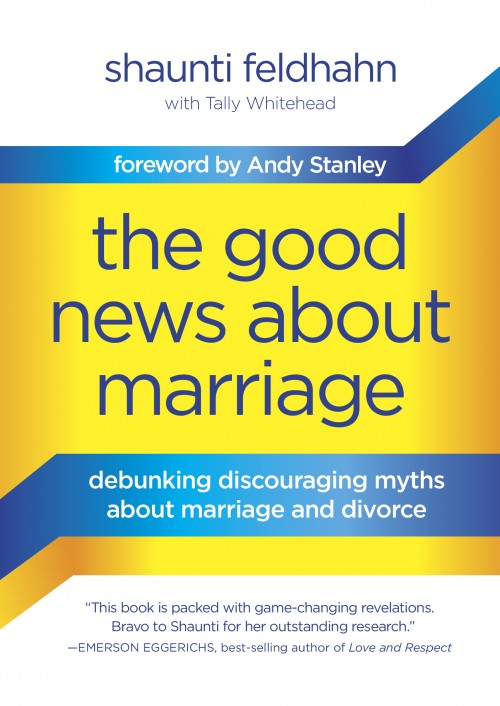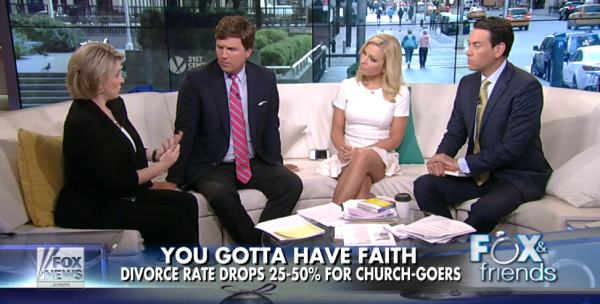
“Fifty percent of all marriages end in divorce,” right?
Not so fast.
Author and social researcher Shaunti Feldhahn is trying to change the way we talk about marriage and divorce:
“There is no such thing as a 50 percent divorce rate. It’s never been close,” she told The Blaze. “Right now … 72 percent of people are still married to their first spouse — that’s Census Bureau data.”
She explained her analysis of the marriage data to The Blaze:
And of the 28 percent who are no longer married to their first spouse, Feldhahn said that a good chunk of those people were married when their husband or wife died and were never actually divorced. So, theoretically, the divorce rate must fall somewhere below the 28 percent mark.
What about this statement? “Church-going couples divorce as frequently those who never darken the church doors on Sunday mornings.” Is that one correct? Not according to Feldhahan:
When comparing Christians to the general population, Feldhahn said that asking the question nominally presented some problems. For instance, if someone says they are a Christian, it doesn’t necessarily mean that person is a practicing believer.
So, Feldhahn partnered with Barna and re-ran their data to focus in on church attendance in the past week — one of the clearest indicators of how deeply one practices his or her faith. While the divorce rate was similar for nominal Christians and the general public, she found something profound among practicing believers.
“The divorce rate dropped by 27 percent between those who went to church last week,” Feldhahn said. “The theory is that attendance in other worship faiths would have a similar impact — being part of a community where people are around you will notice when something is going wrong.”
Feldhahn, who researched this topic for eight years for her new book “The Good News about Marriage,” says everything we’ve been told about marriage is wrong.
Why is this important when it’s obvious marriages are seriously under attack from a culture trying to undermine the principles on which they are founded? Feldhahn believes the excessive pessimism breeds more failed marriages.
“One of the biggest patterns that I’ve seen over the years as a social researcher is that there’s one common denominator about whether marriage survives or fails,” she told TheBlaze. “If a couple thinks they’re going to make it, they generally do. The outcome is very different if they think, ‘This is never going to change. We’re never going to make it.’”
In other words, we should take care to speak accurately about the state of marriage today, to make sure we aren’t inadvertently making things worse.
Buy her book here.

This article first appeared on National Review.









